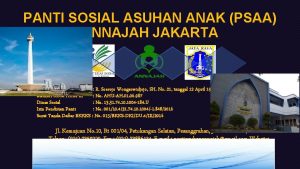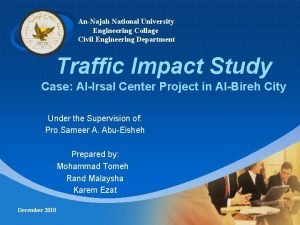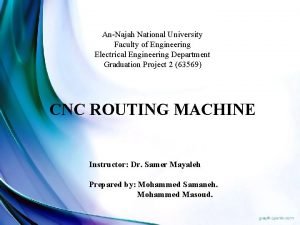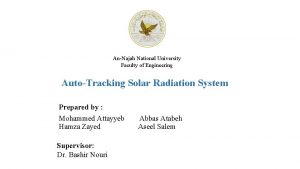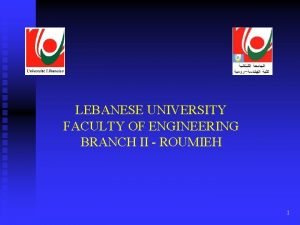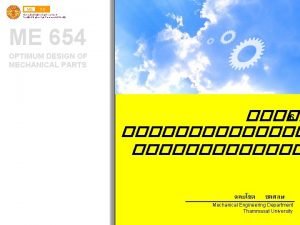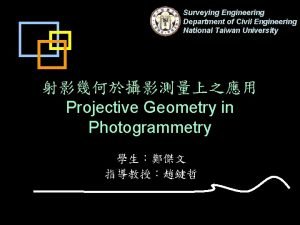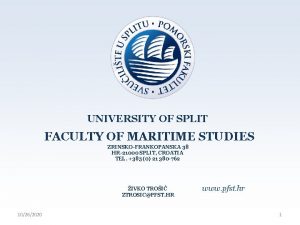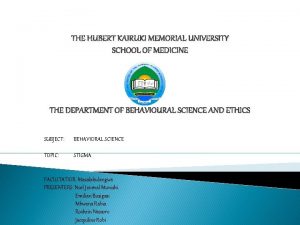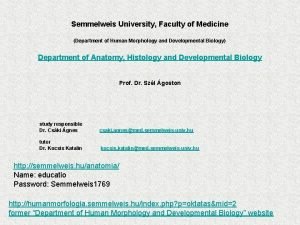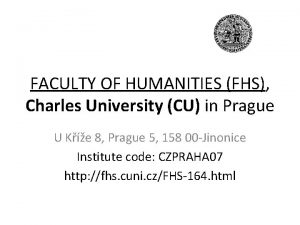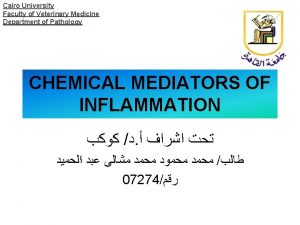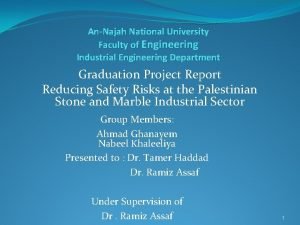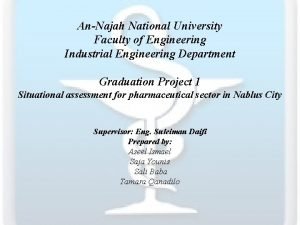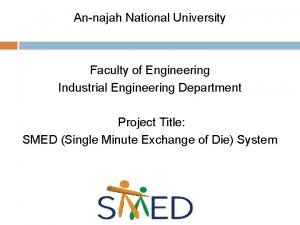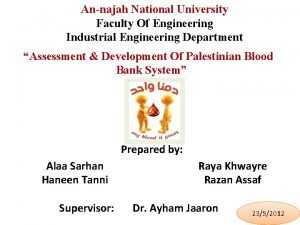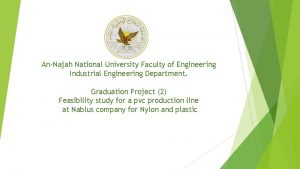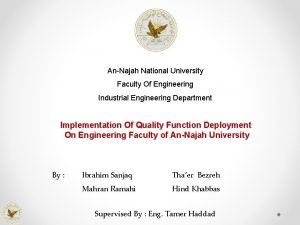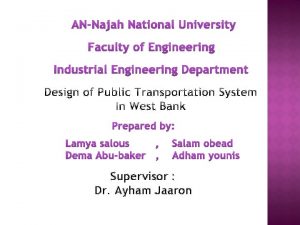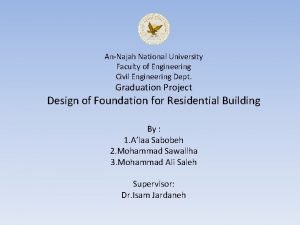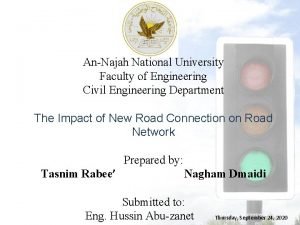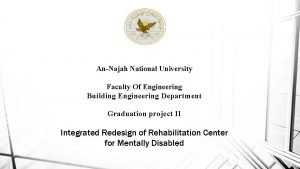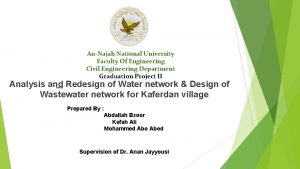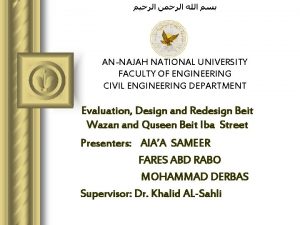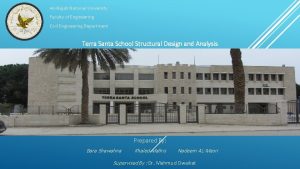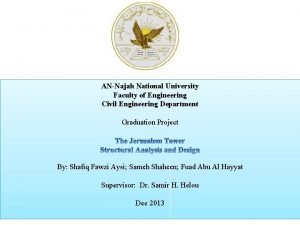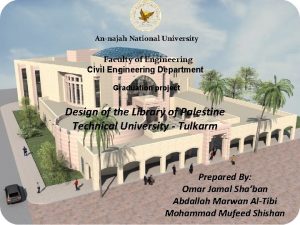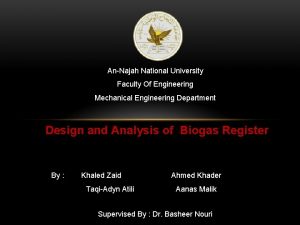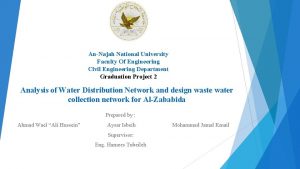AnNajah National University Faculty of Engineering Industrial Engineering





















- Slides: 21

An-Najah National University Faculty of Engineering Industrial Engineering Department Graduation Project Report Reducing Safety Risks at the Palestinian Stone and Marble Industrial Sector Group Members: Ahmad Ghanayem Nabeel Khaleeliya Presented to : Dr. Tamer Haddad Dr. Ramiz Assaf Under Supervision of Dr. Ramiz Assaf 1

Background �The growing number of workers in the industrial sector meant that more and more people are exposed to various forms of risks , and there was a need for a new discipline that studies these risk. 2

�Experts in this field distinguish between two main concepts : �Safety �Health 3

Problem Statement �stone and marble of the largest sectors in Palestine, containing more than 200 facilities, with the increasing number of casualties among workers has become increasingly higher. 4

Goals and Objectives �The main goal of the project is to identify the most significant risks and hazards , to improve the safety and health conditions in this sector. 5

Scope of the project �This project is limited to the health and safety problems in the stone quarries and marble workshops in the West Bank �this project is not intended to examine all the facilities in the West Bank but alternatively a sample of about 10% (20 plants and quarries). 6

Significance of the work �The rationale behind this project can be explained by the large number of injuries and accidents happening in these facilities , and that the main reason for those accidents is the absence of safety procedures. 7

Structure �We will identify risks in the stone and marble we then evaluated based on marginal land repetitive, and then find solutions to all these problems. 8

Earlier Coursework and Standards �Earlier Coursework �The courses that can be related to the main theme of the project are : �Methods Engineering (65420) �Ergonomics and Safety Engineering (65480) �Computational Applications Lab (65310). 9

�Relevant Standards • International Electrotechnical Commission - Risk Management Risk Assessment Techniques (IEC/FDIS 31010). • Palestinian Civil Defense Guidelines 10

Literature Review SAFETY AND HEALTH MANAGEMENT �Health �Safety �Welfare �Occupational or work-related ill health 11

Accidents & Near Misses& Dangerous occurrence �Accident �Near miss �Dangerous occurrence 12

Hazard and risk �Hazard. �Risk. 13

Risk Assessment �There are two basic forms of risk assessment: � Quantitative Risk Assessment � Qualitative Risk Assessment 14

Ex: Quantitative Risk Assessment Figure 4 : Summary of Risk Control Principles 15

MULTI-CRITERIA RISK ANALYSIS TO IMPROVE SAFETY IN MANUFACTURING SYSTEMS � One of the most popular tools to model reliability and failures is FMECA (Failure Mode , Effect And Criticality Analysis Technique). �a multi-criteria decision making tool is used such as AHPANP techniques to include the cost as a factor in the decision making process. 16

�Risk analysis methodologies can include three main phases: • An identification phase : • An evaluation phase • A ranking phase � �RPN : Risk Priority Number : An indicator to the level of priority for a problem. �RPN= S * O * D , where : �S= Severity O= Probability of Occurrence �D=Probability of (not) detecting. �TRPN : Total Risk Priority Number : An indication to the overall safety situation in the facility �TRPN= TRPN 1 + TRPN 2 + TRPN 3 17

Methodology Literature Review Site Visits Risk Assessment Using Surveys Risk Analysis Introducing controls 18

Site Visits and Risk Assessment �In this stage of the project , the team will visit a number of sites and stone quarries that were a representative sample of the entire sector. �Managers and employees will be interviewed to form a first impression about the nature of work in these facilities , then based on that , a survey questionnaire will be designed to gather valuable information about the risks and hazards that are present in this type of business. 19

Risk Analysis �The results of the survey will be used as a basis for a thorough risk assessment and evaluation process that will consist of several stages and activates such as recognition , categorization , quantification and ranking. 20

 Panti asuhan annajah
Panti asuhan annajah Logo annajah
Logo annajah Annajah motors
Annajah motors Annajah motors
Annajah motors Faculty of engineering university of porto
Faculty of engineering university of porto Ulfg2
Ulfg2 Ece clemson
Ece clemson Faculty of mechanical engineering thammasat university
Faculty of mechanical engineering thammasat university National taiwan university civil engineering
National taiwan university civil engineering Herszon kherson maritime college of merchant marine fleet
Herszon kherson maritime college of merchant marine fleet University of bridgeport engineering
University of bridgeport engineering University of bridgeport computer science faculty
University of bridgeport computer science faculty Hubert kairuki memorial university faculty of medicine
Hubert kairuki memorial university faculty of medicine Solid thyroid nodule
Solid thyroid nodule King abdulaziz university faculty of medicine
King abdulaziz university faculty of medicine Fsu cybersecurity major
Fsu cybersecurity major Mendel university - faculty of business and economics
Mendel university - faculty of business and economics Singularity university faculty
Singularity university faculty Territorial matrix vs interterritorial matrix
Territorial matrix vs interterritorial matrix Masaryk university medical faculty
Masaryk university medical faculty Ldap cuni
Ldap cuni Faculty of veterinary medicine cairo university logo
Faculty of veterinary medicine cairo university logo
